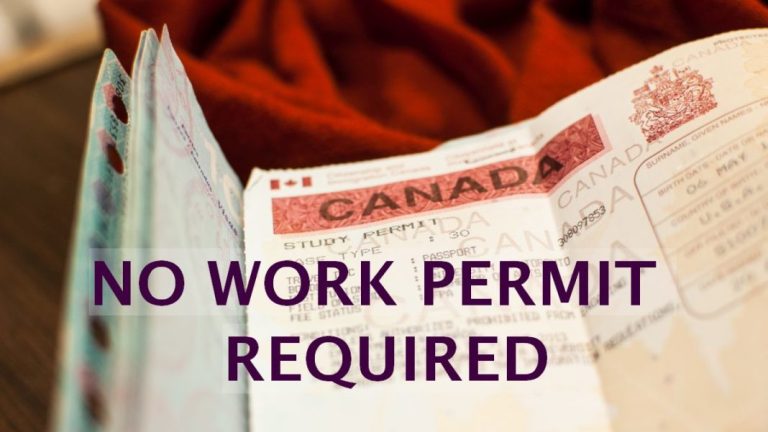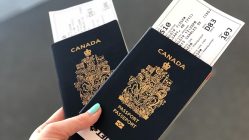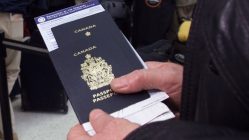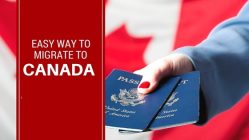Canada offers several jobs that do not require a work permit. Whether you’re a visitor, student, or temporary resident, there are opportunities to work legally without a work permit.
There are a limited number of exceptions where foreign nationals can work in Canada without a work permit. These exceptions are typically for very specific situations or roles, and they don’t allow for general open employment in the Canadian labor market. Here are some of the common exceptions:
Jobs you can do without A Work Permit in Canada
Here are some categories of individuals who can work in Canada without needing a work permit:
1. Business Visitors
Foreign nationals can engage in short-term business activities that don’t involve directly providing services in the Canadian labor market. This could include attending meetings, conferences, trade shows, or conducting research related to their business abroad. For instance, a foreign company executive visiting Canada to discuss a potential partnership with a Canadian company would likely be considered a business visitor. Similarly, a foreign entrepreneur attending a conference to learn about the Canadian startup ecosystem and explore market opportunities wouldn’t typically require a work permit.
2. Diplomatic and Consular Officials
Diplomats, consular officials, and other representatives of foreign governments accredited to Canada, along with their family members holding valid dependant visas, can work in Canada without a work permit. This exemption is based on the principle of reciprocity, meaning that Canada extends the same privilege to diplomats and consular officials from countries that extend similar privileges to Canadian diplomats and consular officials serving abroad.
3. Live-in caregiver
Live-in caregivers can be an exception to the work permit requirement in Canada under certain circumstances. Here’s a breakdown of what you need to know:
Live-in Caregiver Program:
Canada’s Live-in Caregiver Program (LCP) is a pathway for foreign nationals to work as live-in caregivers for children or people with medical conditions who require assistance with daily living activities.
Work Permit Requirement:
While working as a live-in caregiver generally requires a work permit, the LCP offers an exemption for foreign nationals who meet the program’s specific requirements.
Eligibility for the LCP:
-
- Employer: You must have a valid job offer from a Canadian citizen or permanent resident who requires live-in care due to a medical condition, disability, or age-related needs.
- Experience: You’ll need at least one year of paid experience (minimum 3,900 hours) in the past three years caring for children or seniors.
- Language Skills: Basic proficiency in English or French is required (Canadian Language Benchmarks 7 or higher).
- Education: You may need to complete a live-in caregiver training program specific to Canada, although some countries have reciprocal arrangements where experience from approved programs abroad is recognized.
- Medical Exam: You’ll need to pass a medical exam to ensure you’re in good health and fit to work as a live-in caregiver.
- Criminal Background Check: A police certificate from your home country and any other countries you’ve resided in for six months or more in the past ten years will be required.
4. Military and NATO Forces
Military personnel from countries that are part of NATO or who have other agreements on military cooperation with Canada can be stationed in Canada and don’t require work permits. This is because NATO is a military alliance that fosters cooperation and defense collaboration among member countries. Canada’s participation in NATO involves合作 (hé zuò – cooperation) on various military initiatives, and stationed NATO forces contribute to this collaboration. Similarly, Canada has bilateral agreements with other countries regarding military cooperation, which may extend to exemptions from work permit requirements for stationed military personnel.
5. Airline and Marine Crews
If you’re a crew member of a vessel (aircraft or ship) that is registered in a country with a reciprocal agreement with Canada, you may not need a work permit for layovers or short periods of working while the vessel is in Canada. This exemption is intended to facilitate smooth travel and trade between Canada and other countries. However, there are specific requirements that need to be met. For instance, the layover or work period in Canada must be temporary and directly related to your role as a crew member. You also typically cannot disembark from the vessel to engage in any personal activities or work outside your crew member duties.
Here are some of the crew member roles that may be exempt from a work permit under this provision:
* Pilots
* Flight attendants
* Ship's officers
* Marine engineers
To ensure you meet all the requirements and avoid any complications, it’s always advisable to consult with your employer or the Canadian embassy or consulate in your home country before traveling to Canada for work purposes.
6. Exempt Individuals
In specific circumstances, some individuals may be exempt from work permit requirements due to their emergency services provider status. For example, medical professionals from the United States, such as doctors, nurses, and paramedics, may be exempt from work permit requirements if they are providing emergency medical services in Canada during times of crisis, such as a natural disaster or public health emergency.
This exemption is based on the principle of reciprocity, where Canada and the United States recognize each other’s emergency service providers in certain situations. However, it’s important to note that this is a complex area and the specific requirements can vary depending on the circumstances. It’s always best to consult with Canadian immigration authorities or a licensed immigration consultant to determine if an exemption applies in your specific case.
Remember that while these exemptions allow certain work without a work permit, it’s essential to verify specific details and eligibility criteria. Always consult official Canadian immigration sources for accurate and up-to-date information.






